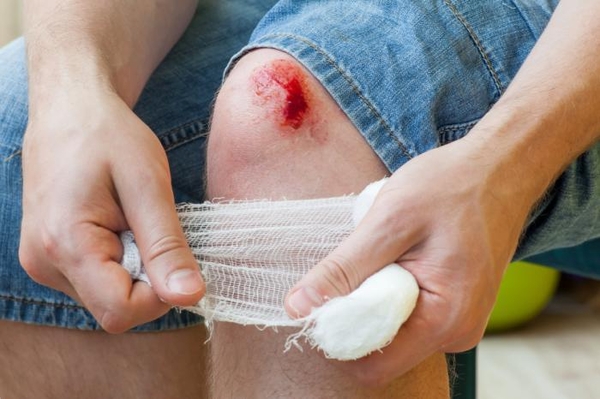An 83-year-old woman who suffered minor abrasions on her hands after a fall, but did not seek treatment two weeks after contracting tetanus, died.
An official from the Hanoi Center for Disease Control (CDC) said two weeks ago, the patient (living in Quoc Oai district) fell while attending a festival held in an apartment building in the village. Later, he went to a private clinic and was diagnosed with a closed condilla fracture of the right humerus, with minor abrasions on his left hand.
Two weeks later, the woman felt more pain in her hands, had trouble breathing, and was very tired from cramps, so she was admitted to military hospital #103 for treatment. Here, the patient was diagnosed with hypertension, atrial fibrillation and heart failure against the background of tetanus. Her health did not improve, her family returned home and her patient died at home.
Tetanus is an acute disease caused by the exotoxin of tetanus (Clostridium tetani), which grows on wounds under anaerobic conditions. The symptoms of this disease are muscle spasms with pain, first in the muscles, face, neck and then the trunk.
The incubation period is usually 3 to 21 days, depending on the nature, size and location of the wound. In most cases, it appears within 14 days of infection with tetanus. The wound is heavily contaminated, the incubation period is short, and the severity is more severe.
Tetanus is a dangerous and costly disease that can take weeks to months to treat. Without prompt diagnosis and treatment, patients are at high risk of death due to respiratory failure, sudden cardiac arrest, systemic infection, and hemorrhage.
Currently, serum injection for tetanus (SAT) is a simple and effective method for preventing disease when there is a skin wound.
Additionally, doctors recommend proper treatment of initial wounds to prevent tetanus. If the wound is deep, broken or dented, clean the wound with salt or clean water and remove any dirt or debris. If the wound is complex, bleeding, and has a lot of dirt and sand attached to it, disinfect it and go to a medical facility quickly.
People should not bandage wounds unless they are cleaned well. This is because it is a condition for the development of tetanus bacteria. Dressings should be checked and replaced daily. If the infection is festering, remove the bandage, clean it, and leave it open, or go to a medical institution to treat the wound. Do not use folk remedies such as attaching leaves and sprinkling powder.


![‘Red Balloon’ Seo Ji-hye “I learned to be bold” [쿠키인터뷰] ‘Red Balloon’ Seo Ji-hye “I learned to be bold” [쿠키인터뷰]](http://www.kukinews.com/data/kuk/image/2023/03/04/kuk202303040001.png)